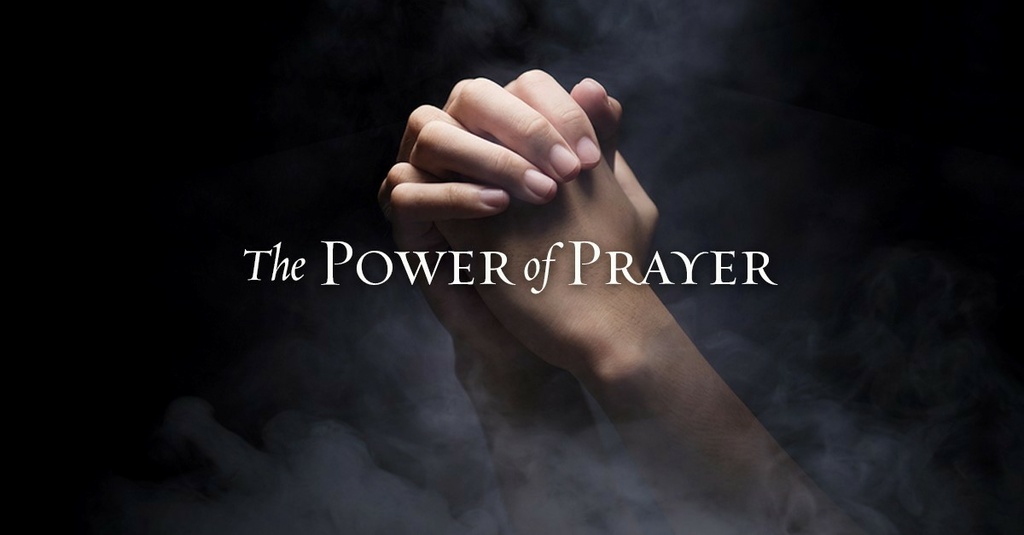
The Power of Prayer
Here is the balance to which we must strive: to pray as if it all depends upon God and to work as if it all depends upon us.

- Chalcedon Editorial
When one thinks of contemporary Reformed books on prayer, the list of titles is sparse. There are theological studies to no end, but not a great deal on something that is so central to the Bible that it’s akin to studying biological life without ever mentioning breathing. Reformed doctrine is robust and needed by the larger church, but we ourselves could emphasize more the importance of prayer.
To find great Reformed books on prayer, one has to trip back to the Puritans (and maybe that’s the reason there are so few modern books of prayer from the Reformed perspective — nobody feels they can improve on the Puritans!). They were masters of the internal Christian life. Not since their reign in history has anyone achieved such a masterful blend of theology and piety in Christian literary works. They demonstrated that strong doctrine and fervent prayer are by no means opposed. Rather, prayer and theology make up a two-edged sword effective in routing spiritual opposition, sanctifying the flesh, empowering the Church, and liberating the nations.
Yet, even though there are many advocates of prayer among modern evangelicals, much of the praxis falls short of the Puritan ideal. The more extreme paradigms of contemporary prayer are simply regurgitations of introverts such as Madame Guyon, Jessie Penn-Lewis, and Watchman Nee. These are the “Mary’s” who choose to sit at the feet of Jesus rather than meddle with the pots and pans so important to Martha. In commenting on Jesus’ response to Martha in Luke 10:41–42, Rushdoony offers the following corrective measure:
Our Lord’s comment to her simply said that His presence and His teaching were more important than maintaining traditional standards of lavish hospitality. It was not a statement about the superiority of the contemplative to the active life. It was a statement about, priorities, and, from a reading of all Scripture, we see that at times the priority is action, at other times prayer, because at all times the service of the Lord must govern us … To put the contemplative against the active life is abstractionism and alien to Scripture. 1
Here is the balance to which we must strive: to pray as if it all depends upon God and to work as if it all depends upon us. Psalm 24:1 declares, “The earth is the Lord’s and the fulness thereof.” Our spiritual lives are to be lived in the fullness of the earth that belongs to our sovereign Lord. He will energize our labors as we seek His abundant strength in all that we set our hands to. When Saint Paul declared that He is “able to do exceeding abundantly above all that we ask or think,” he added that God’s response would be “according to the power that worketh IN US” (Eph. 3:20, emphasis added).
Although God is sovereign in history and works out His eternal decree in ways unbeknown to us, He still moves through us in His redemptive plan to win both souls and cultures: “For it is God which worketh in you both to will and to do of his good pleasure” (Phil. 2:13).
The Apostle Paul demonstrates for us the exemplary life of prayer as he often sought God’s power to infuse his labor:
“My little children, of whom I travail in birth again until Christ be formed in you.” Gal. 4:19
“Cease not to give thanks for you, making mention of you in my prayers.” Eph. 1:16
“For this cause I bow my knees unto the Father of our Lord Jesus Christ.” Eph. 3:14
“For this cause we also, since the day we heard it, do not cease to pray for you.” Col. 1:9
There is no doubt that Paul understood the sovereignty of God in the affairs of history. Yet, he clearly was a man of diligent prayer believing that God works with man in the unfolding of His Kingdom. Paul’s faith in God’s providence was manifested in his persistent coming to God with particular requests, and it seemed God often answered him with great power and grace. I believe our calling is to follow hard in the prayerful footsteps of the Biblical warriors of prayer. History has witnessed no greater examples.
Finally, there is significant truth to the verse that says, “[Y]e have not, because ye ask not” (James 4:2). If we were as diligent in our prayers as we are in our reading of books, might we see more mountains move? Maybe the missing ingredient in the Reformed view of life is a lack of prayer, and not a lack of good theology.
And as you pray, please remember the ministry of Chalcedon. It’s the faithful prayers and support of our ministry partners that has kept us going since 1965.
Notes:
1 Rousas John Rushdoony, Systematic Theology: In Two Volumes, Vol. II (Vallecito, CA: Ross House Books, 1994), 1201.

- Chalcedon Editorial